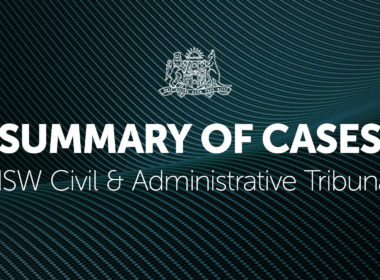Trust accounts play a pivotal role in maintaining integrity, transparency and fiduciary responsibilities of the legal profession. Any failure to address irregularities promptly can have profound consequences, affecting the reputation of the legal profession and undermining the foundations of trust upon which the legal profession has been built.
Reporting irregularities (or suspected irregularities) in relation to trust money is a mandatory requirement and with the obligation established in s154 of the Legal Profession Uniform Law (NSW) (Uniform Law). Solicitors must report all trust money irregularities (or suspected irregularities) to the Law Society, regardless of the monetary value of the irregularity.
The obligation applies to all solicitors and is twofold:
- If you are a solicitor and you become aware of a deficiency or irregularity in the trust account of a law practice of which you are a principal or an employee, you must report the irregularity to the Law Society as soon as practicable (s154(1)).
- If you are a solicitor and you believe on reasonable grounds there is an irregularity in the receipting, recording or disbursement of another law practice’s trust money, you must report the suspected irregularity to the Law Society as soon as practicable (s154(2)).
Irregularities reported by Solicitors to the Law Society include:
- intermixing trust money with other money; for example when a client deposits trust money into the office or general account
- a deficiency in any trust account or trust matter ledger resulting from paying more from the matter than the balance available
- using trust money for office or personal expenses, for example by making payment from the wrong account
- receipt of trust money from unknown / unexpected sources
- cyber-crime, cyber-fraud, including email fraud, direct debits and PayPal payments from the trust account and business email compromise
- failing to maintain accurate records of trust account transactions
- failing to promptly disburse trust money to the intended recipients, failing to pay barristers fees or third-party disbursements
- failing to reconcile trust account balances
- failing to obtain proper authorisation before making withdrawals from a trust account
What are the common signs of a trust account irregularity?
Identifying trust account irregularities requires a thorough understanding of the rules and regulations governing trust accounts and diligent monitoring of trust account activity.
Here are some common signs of trust account irregularities:
- Suspicious activity. Unusual or suspicious transactions such as large transfers, receipts from unknown sources, unexplained withdrawals or frequent transfers to personal accounts may indicate that the account is being misused.
- Mixing trust money with other money. If funds that do not comply with the definition of trust money per S129(1) are mixed with trust money, this is a clear violation of trust account rules and regulations.
- Inaccurate or incomplete records. If the trust account records are incomplete, disorganised or contain errors, this may indicate that the trust account is not being managed properly.
- Failure to reconcile accounts. If the trust account is not reconciled regularly, this may indicate that the account is not being managed properly or that there are discrepancies that need to be investigated.
- Unauthorised withdrawals. If funds are withdrawn from the trust account without proper authorisation, this may indicate that the account is being misused.
If you identify any of these signs, it is important to investigate further and take action to rectify the irregularity. In addition, if the irregularity has affected client billing and invoices or directions (or instructions) relating to the money, the client must be notified accordingly.
Should you wish to discuss any potential irregularities, please contact the Trust Accounts Department of the Law Society on (02) 9926 0337 or by email: trust@lawsociety.com.au.
How do I report an irregularity?
You can report any irregularities or suspected irregularities to Sharon Blake, the Chief Trust Account Investigator of the Trust Accounts Department of the Law Society providing detailed information about the irregularity including any supporting documentation and steps taken to rectify the irregularity by email: trust@lawsociety.com.au
If you haven’t taken immediate action to rectify the irregularity, you must do so at the earliest opportunity.
What happens after I report an irregularity?
The Trust Accounts Department will acknowledge receipt and request clarification or additional action as appropriate. In some instances, a formal investigation may commence into how and why the error occurred.
What happens if I don’t report an irregularity?
A failure to report a trust account irregularity is conduct that may amount to unsatisfactory professional conduct or professional misconduct (s466(6) of the Uniform Law) and is also a civil penalty offence.
A solicitor is not excused from the requirement to report a trust account irregularity on the following grounds:
- legal professional privilege;
- a duty of confidentiality;
- a lien over a document or a class of documents (s466(2) of the Uniform Law); or
- that it may tend to incriminate the solicitor (s466(3) of the Uniform Law).
Under s466(4) of the Uniform Law any information, document or other thing obtained as a consequence of complying with s154 is admissible against the person in proceedings or procedures for making a false or misleading statement; or for a disciplinary matter or for an offence against Uniform Law but is not otherwise admissible in evidence.
These rules aim to protect the public and uphold high professional standards and relies on honesty and trustworthiness of anyone associated with trust accounts.




